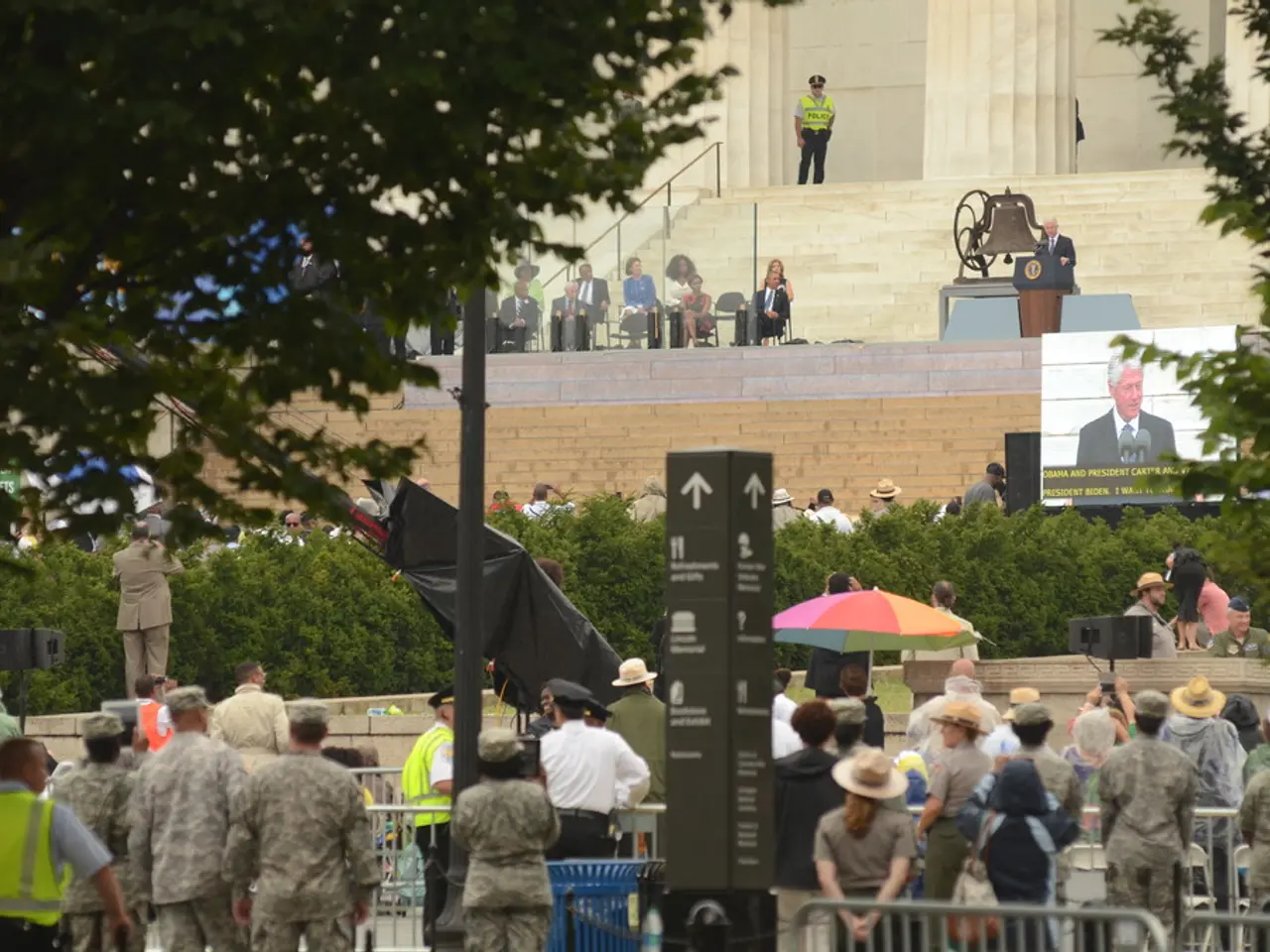U.S.-India relations hit a roadblock due to Trump's implementation of a 50% tariff, causing widespread distrust between the two countries.
The U.S.-India trade relationship has taken a turn for the worse following President Trump's decision to impose and then double tariffs on Indian goods. Initially, a 25% tariff was imposed, but this was swiftly raised to 50%.
The Indian government, through its Ministry of External Affairs, has expressed its disagreement with the tariffs, stating they are "unfair, unjustified and unreasonable." India's response has been firm, emphasizing certain "red lines" that it will not cross during trade negotiations.
The Indian government views the tariffs and associated penalties as a form of coercion that risks reversing decades of progress in bilateral relations. The specific goods subject to the increased tariff were not specified, but the move also involved secondary penalties related to India's purchases of Russian oil.
In an executive order, Trump stated that India is currently importing oil from the Russian Federation. India perceives this as coercive interference in its foreign policy and impractical given its energy needs.
India has announced its intention to take "appropriate steps" to protect national interest in response to the tariffs, but the exact nature of these steps has not been specified. New Delhi continues to engage in ongoing dialogue with the U.S., aiming for a possible deal that could ease tensions.
Analysts have described the decision as sending a "muddled strategic signal" about Washington's foreign policy priorities. The potential impact of the tariff increase on the U.S.-India trade relations has been described as significant.
Despite the challenges, both governments continue to engage in trade talks, with India considering tariff adjustments and increased U.S. imports of LNG and defense products. There is also a possible area of cooperation on quality control orders that affect product certification in India.
This decision has triggered a "total mistrust" in bilateral ties between the U.S. and India, with the new tariff rate on Indian goods set to take effect on August 27. The future of the U.S.-India trade relations remains uncertain, with both countries continuing their dialogue to potentially restore aspects of the partnership.
- Tensions in the U.S.-India trade relationship, exacerbated by policy-and-legislation like the imposed tariffs, have led to confrontations in the realm of politics and general-news, as both governments struggle to find a resolution.
- The Indian government is engaged in a delicate dance of policy-and-legislation, as it navigates war-and-conflicts and foreign policy challenges, such as the tariffs and the restrictions on purchasing Russian oil, while striving to protect its national interest and preserve bilateral relations with the U.S.








